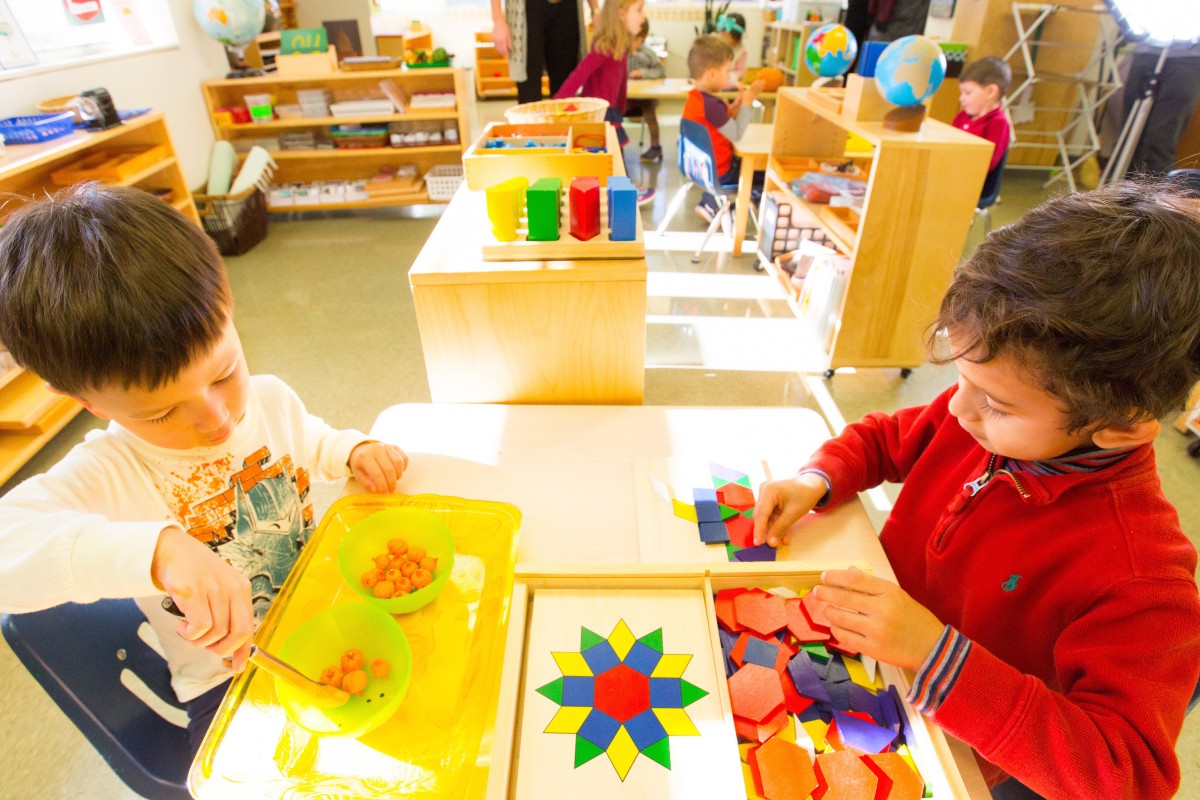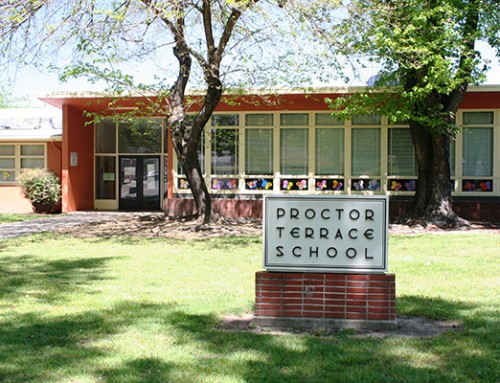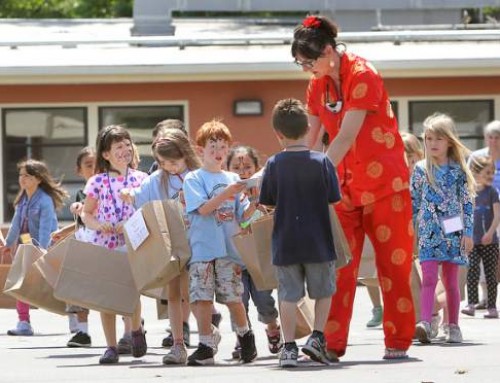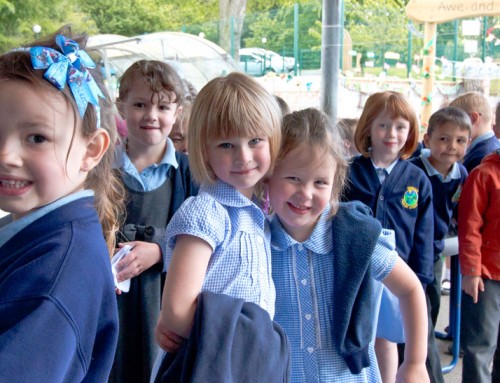Montessori and the Child with Special Needs
Recently I have received quite a few questions about children with special needs (autism, ADHD, and others) and how they can fit into the Montessori environment. Since many of the questions were similar, it seemed like a good idea to jot down some thoughts about this topic.
There are several things about the Montessori philosophy and materials that make it a wonderful option for children with special needs, and several things that can cause some difficulty also. Please note that I am speaking in generalities; every school is different so there’s a lot of variation out there.
Pros when considering Montessori for a child with special needs:
1. The materials and the environment: The Montessori classroom is filled with beautiful materials that engage all of the senses. The materials are hands-on, therapeutic, enticing, and include a built-in control of error. In most cases they teach only one skill (or salient point) at a time. They offer a wonderful chance for children with special needs to use their hands to explore and learn.
2. Multi-age classrooms: In Montessori, children are put into multi-age classrooms, so they can learn from older children, and help the younger children in the classroom. If a child needs to repeat a grade, they can do so without being “held back” while watching their friends move to a new classroom.
3. Following the child: Montessori children are encouraged to work at their own pace, without the burden of competition, test scores, and grades. They are also encouraged to follow their own interests when it comes to reading, writing, and research. This kind of freedom allows the special needs child to flourish.
4. Consistency: The multi-age classroom means a child is with a teacher for a 3-year cycle, allowing the teacher to build a strong relationship with the parents and the child. As well, the child doesn’t have the stress of always starting in a new classroom at the beginning of each school year.
5. The philosophy of Montessori: In Montessori, there is an emphasis on peace, cooperation, and respect, making it much less likely that a child with special needs will be teased or ostracized. Instead, the other children usually make an effort to accept, befriend, and encourage a special needs child.
Cons when considering Montessori for a child with special needs:
1. Class size: Class sizes in Montessori tend to be large, so that children can help each other rather than rely on the teacher. This means, however, that a special needs child who needs a lot of one-on-one adult direction may not get as much attention as they need.
2. Independent work: In Montessori, children are encouraged to work independently after brief presentations from the teacher. Again, a child who needs more help may not be able to get that teacher/child interaction. The child with special needs may find it difficult to focus, concentrate, and work on his/her own.
3. Lack of information: Most Montessori training centers do not include information on working with special needs children, so unless the teacher has studied this topic elsewhere, or has previous experience with other special needs children, they may not know very much about working with a special needs child and how to integrate them into the classroom.
4. Lack of special services: Because many Montessori schools are private, they are not able to offer extra services to the special needs child and his/her family. Public schools are required to offer services to any child in their district (whether the child attends public school or not), but it can be harder to coordinate and/or receive those services when the child is attending private school.
5. Starting late: Many times, parents of special needs children try Montessori when other options have failed. This means that special needs children are often starting Montessori at a later age, and they’ve missed out on foundational work that is necessary to succeed in Montessori. It’s hard for any child, regardless of ability, to start Montessori after the age of 3 and gets harder as each year goes by.
6. Not all Montessori schools are created equal: In some cases, a school may call itself “Montessori” but is not equipped with the correct materials, trained teachers, and accompanying philosophy. This can lead to disillusionment with Montessori on the part of the parents, as well as an unpleasant experience for the child. Parents should always observe at a Montessori school before enrolling their child; here’s what to look for.
What is a parent to do? Is Montessori really an option for the special needs child?
Yes, I think it can be. But it takes a lot of work on the part of the parent and the teacher to make it successful.
Here are some ways it can work successfully:
1. Communication is key: The parent and teacher must establish an open relationship with clear guidelines. They may want to meet more frequently than the usual twice-a-year parent/teacher conferences. The parent may want to observe (many Montessori classrooms have one-way observation windows), see what their child is doing, and talk to the teacher about how to help their child succeed.
2. Bring Montessori home: Parents should bring in Montessori materials and related hands-on materials for their child to use at home. Two places in particular, For Small Handsand Michael Olaf Montessori are great places to find Montessori items for the home. The home should be modified to make it more “Montessori” including child-accessible shelves for books, puzzles, and materials; lots of time spent outdoors; little or no TV; and clear logical consequences for misbehavior. Just as in the Montessori classroom, the child should be given tasks he/she can succeed at and the parent should never do something for the child that the child can do themselves.
3. Outside help: The parent should pursue therapy for the child from people qualified in working with special needs children, in addition to Montessori school. This can include but is not limited to physical therapy, speech, behavioral therapy, individual and family counseling, and medical care. The teachers should be aware of any outside therapy the child is receiving and if possible, speak to the child’s primary therapist or doctor.
4. Homeschooling with Montessori: Using the Montessori method and materials at home gives the child the best of both worlds: lots of one-on-one attention from the adult, as well as use of the hands-on materials.
5. Public school Montessori: In this scenario, the child gets the benefit of the Montessori method and materials, as well as public school programs and therapies that are in-house and can take place during the school day.
6. Ratio: There must be a very favorable teacher/student ratio (lower than typical Montessori classroom); usually Montessori schools specifically for children with special needs have a 1:5 or even 1:2 (one teacher per 5 students or one teacher for 2 students).
Is the Montessori method being used successfully with special needs children?
Yes, it is. The most successful programs seem to be those that are geared specifically towards special needs children, where the class sizes are small and the teachers are also credentialed in working with special needs children. One great example was The Lane Montessori School of Autism run by Michelle Lane. You’ll want to read the interview I did with Michelle for a lot of helpful information about Montessori and autism.
Another great resource is the book Children Who Are Not Yet Peaceful by Donna Bryant Goertz. I used this book as the basis for my blog post Soothing Work for Troubled Kids that outlines the way the “hands-on” materials of Montessori can literally be therapy for children with behavioral or emotional issues.
Blog Posts & Articles:
Montessori Education for Sensory Processing Disorder
Interview with Michelle Lane of the Montessori School for Autism
Bringing Montessori Discipline Into the Home
Montessori Basics: Homeschooling with Montessori
Montessori-related Materials for Home:
For Small Hands
Michael Olaf Montessori
Successful programs combining Montessori & special needs:
Montessori Autism Programs and Services
The Lane Montessori School for Autism
Shelton School
Books:
Children Who Are Not Yet Peaceful – targeted towards elementary but applicable to primary as well
How to Raise an Amazing Child the Montessori Way – helpful information for parents on how to bring Montessori principles into the home
Also, I recommend Googling “Montessori ADHD” and “Montessori autism” for a lot of interesting results, including discussion forums where parents share their questions and experiences.







Leave A Comment